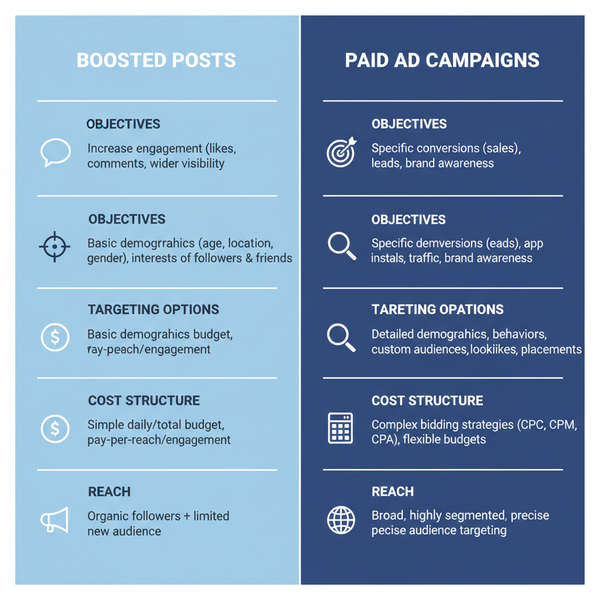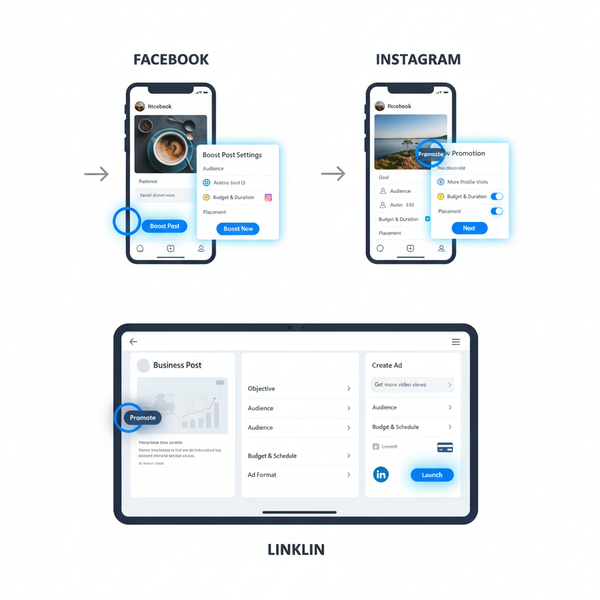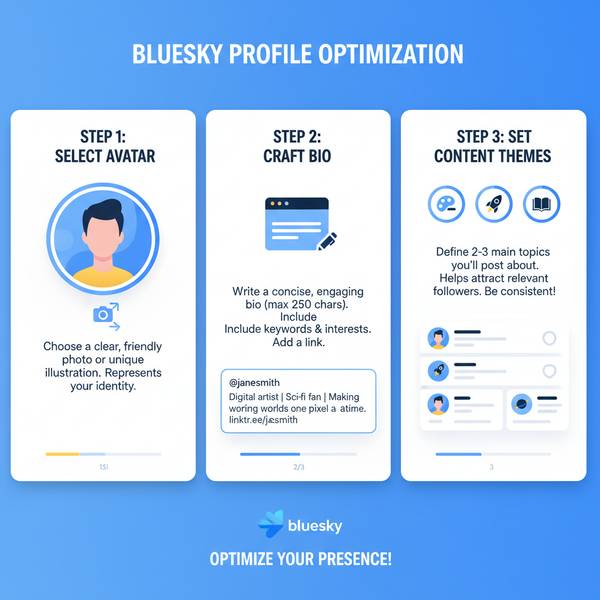How to Become a UGC Creator in 2025: Skills, Rates, and a Step-by-Step Plan
Learn how to become a UGC creator in 2025: essential skills, budget gear, niches, portfolio tips, where to find paid gigs, pricing, negotiation, and scaling.
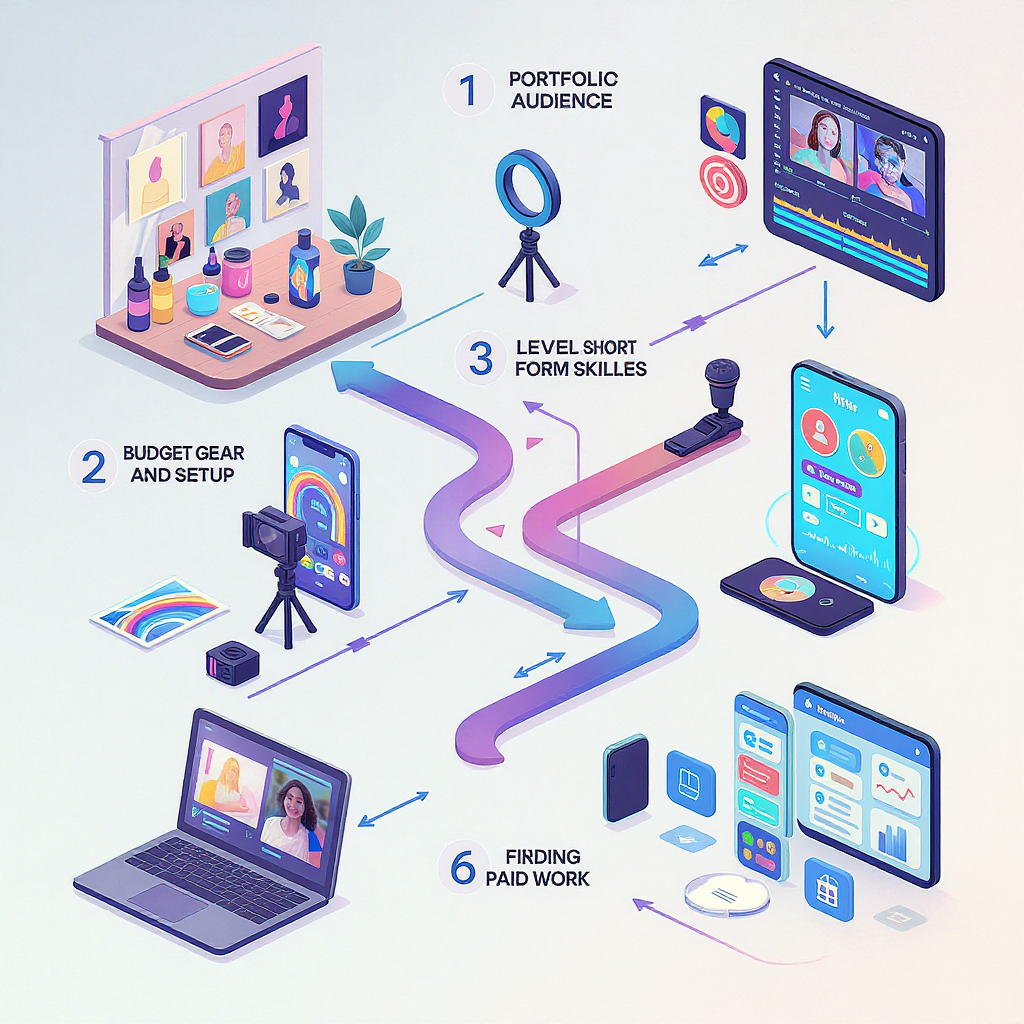
How to Become a UGC Creator in 2025: Skills, Rates, and a Step-by-Step Plan

If you’re wondering how to become a UGC creator in 2025, you’re in the right place. This guide covers what brands want, the skills that convert, gear on a budget, where to find paid gigs, how to price and negotiate, and how to scale without burning out.
What a UGC Creator Is (and Isn’t)
UGC (user-generated content) creators produce short-form, ad-ready videos and photos brands purchase to use on their own channels or ads. You don’t need a large audience—your value is creative that looks native, feels trustworthy, and sells.
How UGC creators differ from influencers:
- Influencers sell access to their audience.
- UGC creators sell content and performance, not reach.
Why brands buy creator-made ads:
- Authenticity beats glossy creative in feeds.
- Fresh creative fights ad fatigue.
- Fast iteration for A/B testing.
- Lower production costs and faster turnaround.
Common UGC formats:
- First-person testimonials
- “Day-in-the-life” and POV demos
- Unboxings and first impressions
- Before/after transformations
- How-to and “3 reasons why” explainer shorts
- Problem/solution skits and voiceovers
Industries that rely on UGC:
- Beauty, skincare, haircare
- Health and wellness
- Food and beverage, CPG
- Fashion and accessories
- Fitness and home equipment
- Apps, SaaS, fintech, edtech
- Home, lifestyle, travel, and local services
Pick a Niche and Audience
Match your strengths to brand needs:
- On-camera presence: beauty, skincare, lifestyle, fashion
- Hands-only/product B-roll: gadgets, kitchen, home decor
- Voiceover/scripted: apps, SaaS, explainers
- Tech-savvy editing: gaming, productivity, education
Define your tone and style:
- Warm and friendly, expert, playful, or minimalist
- Aesthetic (color, background), pacing, and CTA style
Research competitors:
- Search TikTok/Reels for “[niche] UGC”
- List 5–10 creators: note hooks, angles, delivery, and edits
- Identify gaps you can own (e.g., “derm-style skincare tests”)
Craft a simple positioning statement:
- Formula: I create [format/style] for [niche] that [business outcome].
- Example: I create test-driven skincare UGC that boosts hook rates and educates buyers in under 30 seconds.
Build a Portfolio Without Clients
Create spec work that looks paid:
- Write mock briefs for 3–5 brands you admire.
- Film 1–2 videos per brand: testimonial + demo, unboxing + CTA.
- Include variations: different hooks, angles, and CTAs.
Publish and organize:
- Post 5–10 standout samples on TikTok/Reels/Shorts.
- Pin your top 3, optimize captions, and add relevant hashtags.
- Create a 30–60s case-study reel combining clips + outcomes (even hypothetical goals and structure).
What to include in your portfolio page:
- 6–12 best videos (organized by niche or format)
- Clear list of deliverables (e.g., “UGC ads, raw B-roll, hooks pack”)
- Services and packages
- Contact form and booking link
Level Up Short-Form Skills
Write magnetic hooks:
- Problem-first: “I stopped breaking out by changing one step.”
- Pattern interrupt: “I put sunscreen on only half my face for a week…”
- Social proof: “Derms recommend this $12 moisturizer.”
Show benefits fast:
- 0–3s hook, 3–12s problem/solution, 12–25s demo/results, 25–35s CTA
- State concrete outcomes: time saved, money saved, fewer steps
Natural delivery:
- Speak to one friend, not an audience.
- Vary pace, intonation, and facial expressions.
- Keep cuts every 1–3 seconds to maintain attention.
Production and editing:
- Frame head-and-shoulders or chest-up; keep eyes on the top third.
- Use jump cuts, punch-in zooms, on-beat transitions.
- Add burned-in captions/subtitles.
- End with a clear CTA (click, learn more, shop now).
Helpful “hooks pack” ideas:
- “3 things I wish I knew before…”
- “I tested [product] so you don’t have to…”
- “POV: You’re tired of [pain point]…”
Gear and Setup on a Budget
Smartphone:
- Shoot 4K 30fps (or 1080p 60fps for action).
- Lock exposure/focus; clean your lens.
- Use rear camera for best quality when possible.
Stability:
- Compact tripod and a phone clamp
- Simple gimbal for movement shots (optional)
Audio:
- Wired lapel mic (reliable, no latency)
- Budget shotgun mic for off-camera voice
- Record in a quiet, soft-surfaced room
Lighting:
- Window light at 45 degrees or ring light
- Softbox for softer, pro-looking skin tones
- Avoid mixed color temperatures
Background:
- Neutral wall, tidy shelf, or on-brand color
- Prop with product-relevant items
Recording checklist:
- Battery >50%, storage >5 GB
- Airplane mode on
- Lens cleaned, mic check, clap sync
- Test 5–10s clip, watch with sound
- Record 2–3 takes per hook
File naming and workflow:
- Project-based folders (brand_date_shot)
- Separate raw, selects, exports
- Backup to cloud or SSD
Example:
/UGC_projects/
brandx_2025-03/
raw/
bx_2025-03_hookA_take1.MOV
bx_2025-03_hookA_take2.MOV
selects/
exports/
bx_2025-03_v1_9x16.mp4
bx_2025-03_v1_1x1.mp4
bx_2025-03_captions.srtWhere to Find Paid UGC Work
Creator marketplaces and collab hubs:
- Search for “UGC marketplace” and “UGC briefs”
- Brand ambassador programs and product seeding forms
- Platform-native collab tools (e.g., TikTok Creator Marketplace)
Freelance platforms:
- Upwork, Fiverr Pro, Contra, Working Not Working
- Niche job boards (marketing, DTC, startup communities)
Cold outreach and DMs:
- Target brands already running short-form ads.
- Speak to an outcome and suggest a test.
Template:
Subject: 3 ad-ready UGC concepts for {Brand}
Hi {Name}, I’m {Your Name}, a {niche} UGC creator.
I noticed your {platform} ads focus on {angle}. I can produce 3 new variations that test:
- Hook: {pain-point hook}
- Angle: {benefit or social-proof}
- CTA: {specific offer}
Here are 3 recent samples: {link}
Package: 3x 20–30s videos + 6 hooks + raw B-roll. Turnaround: 7 days.
Want a quick, no-cost 10s spec sample to see fit?
— {Your Name} | Site | IG/TikTokTrack leads:
- Use a simple CRM spreadsheet (brand, contact, date, status, next step).
- Follow up in 3–5 business days.
Network where buyers hang out:
- DTC Slack/Discord groups, Facebook ad communities
- Local businesses (gyms, salons, cafes)
- LinkedIn posts targeting performance marketers and founders
Pricing, Packages, and Rights
Your pricing depends on experience, niche, deliverables, and usage. Always quote based on deliverables + rights.
| Deliverable | Typical Range (USD) | Notes |
|---|---|---|
| 1 UGC video (20–45s) | $200–$1,200 | Script/light edit, organic use |
| Ad-optimized UGC (with hooks/variants) | $500–$2,500 | Includes 3–6 hooks or 2 cuts |
| Raw B-roll package (3–5 min) | $150–$600 | Unedited clips for brand editor |
| Hooks pack (10–20 hooks) | $150–$500 | Scripted lines + delivery |
| Usage license (30 days, brand-owned channels) | +20%–50% of asset fee | Per platform or universal |
| Whitelisting/allowlisting (run ads via creator handle) | $250–$750 per 30 days | Plus asset and usage fees |
| Exclusivity (per month in category) | +25%–100% of project | Define category/territory clearly |
| Rush fee (turnaround <72h) | +25%–50% | |
| Revisions | 1–2 minor included | Additional billed hourly or flat |
Key definitions:
- Licensing: permission for brand to use your content; scope = platforms, regions, duration.
- Whitelisting/allowlisting: brand runs paid ads through your handle (you grant access).
- Exclusivity: you don’t work with competitor category for a set time/region.
Recommended payment structure:
- 50% deposit to book, 50% on delivery (before usage)
- NET 7–15 days on final invoice
- Late fees in contract
Pitch and Close Deals
Portfolio and media kit essentials:
- About and positioning
- Services, packages, starting rates
- 6–12 top samples, metrics if available
- Client logos and testimonials (as you earn them)
- Contact and booking link
Discovery call questions:
- What’s the goal? (CPAs, ROAS, new creative testing)
- Who’s the target audience and main pain point?
- What’s working in your ads now? What’s fatiguing?
- Offers, promo codes, landing pages?
- Usage scope: platforms, geos, duration, whitelisting?
- Timeline, approvals, key stakeholders
Offer a low-friction spec:
- 10–15s unpaid micro-spec concept (watermarked) to show fit.
- Convert to paid once greenlit with deposit.
Handle objections:
- Price: reduce scope, not rate (e.g., remove variants).
- Risk: propose a paid test (1–2 assets) before larger package.
- Time: offer a clear calendar and checkpoints.
Contract clauses to include:
- Deliverables, timeline, and revision rounds
- Usage scope (platforms, regions, duration)
- Whitelisting/allowlisting permissions and access steps
- Exclusivity terms (category/length)
- Payment schedule, late fees, kill fee
- Reshoot policy (what counts as a new scope)
- FTC disclosures if you post; brand must provide claims support
- No AI training clause (content cannot be used to train models without consent)
- Indemnification for product claims provided by brand
Deliverables and Performance
Handoff formats:
- Source: 4K master when possible
- Final exports: 9:16 primary, with captions burned-in
- Separate clean version (no text) if brand wants to add overlays
| Platform | Aspect Ratio | Resolution | Notes |
|---|---|---|---|
| TikTok | 9:16 | 1080×1920 (or 2160×3840) | Safe margins top/bottom, captions recommended |
| Instagram Reels | 9:16 | 1080×1920 | Keep key text within center 80% |
| YouTube Shorts | 9:16 | 1080×1920 | High contrast thumbnails help |
| Meta Feed Ads | 1:1 or 4:5 | 1080×1080 / 1080×1350 | Crop versions from master |
Content calendars:
- Align with product drops and promos.
- Plan 2–3 creative angles per product.
- Build in testing cycles and review windows.
A/B testing ideas:
- Hook variations (pain point vs. social proof)
- CTA phrasing (shop vs. learn more vs. claim offer)
- Opening shot (face vs. product macro)
Key metrics to track:
- Hook rate (3s views ÷ impressions)
- View-through rate (VTR) and average watch time
- Click-through rate (CTR)
- Cost per acquisition (CPA) and return on ad spend (ROAS)
- Save/share rate on organic posts
Turn results into case studies:
- Brief, hypothesis, creative angles
- Metrics before vs. after
- 1–2 punchy quotes from the brand
- The asset(s) that won and why
Scale Sustainably
Retainers with brands:
- Monthly package: e.g., 6 videos + 12 hooks + 5 min B-roll
- Include reserved shooting days and priority turnaround
Outsource non-core tasks:
- Editing, captions, color, or sound cleanup
- Thumbnail design and metadata formatting
Diversify income:
- Affiliate links and creator codes
- Template packs (hooks, briefs, shot lists)
- Coaching or audits for small brands
- Paid workshops in your niche
Time management:
- Batch ideation, scripting, and filming days
- Use templates for briefs, shot lists, and delivery notes
- Maintain a CRM and weekly follow-up routine
Legal and tax basics:
- Register a business (LLC if appropriate), get an EIN
- Separate bank account and bookkeeping
- W-9/W-8BEN for US clients, keep receipts for write-offs
- Simple MSA + project SOW for every engagement
Avoid burnout:
- Set revision boundaries and work hours
- Build breaks into your content calendar
- Track your effective hourly rate—raise prices as demand grows
Quick Reference: Shoot-to-Delivery Workflow
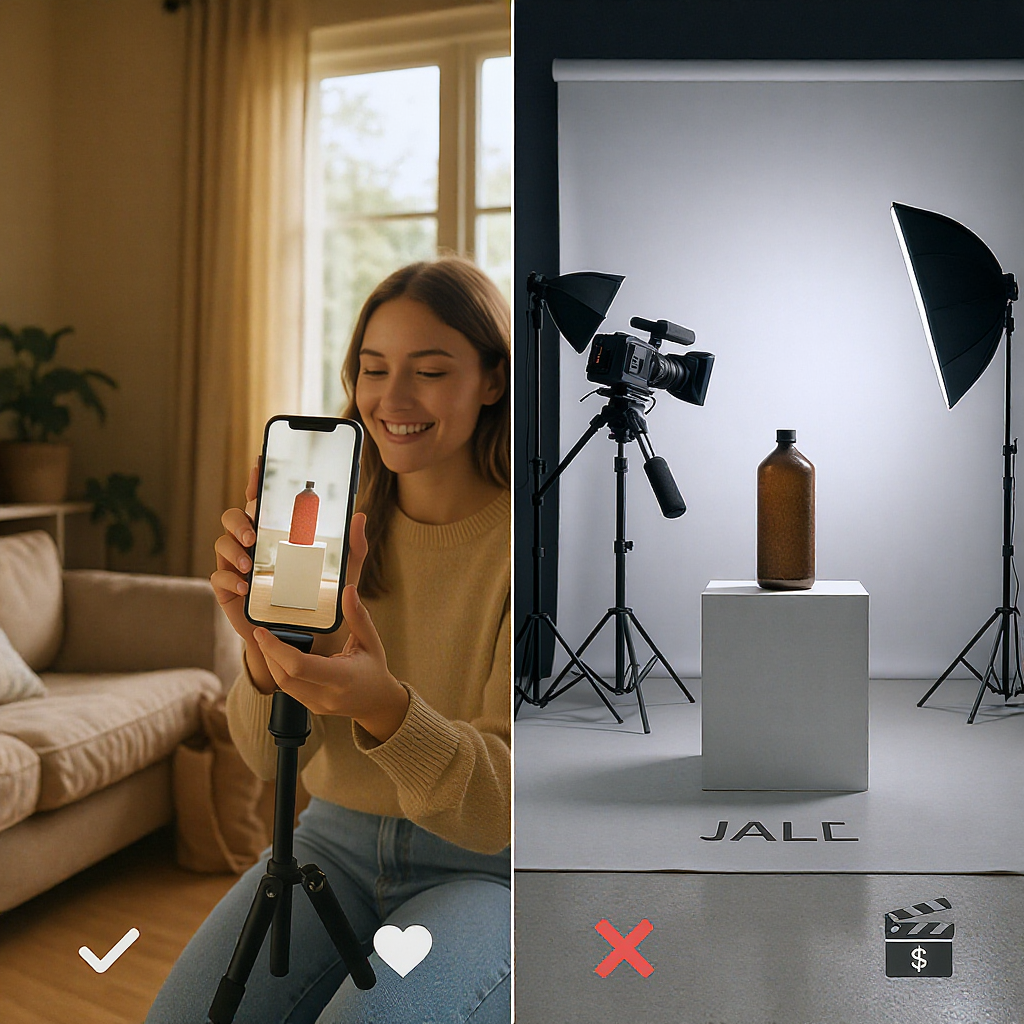
- Brief and script: confirm hooks, angles, claims, and CTA
- Shot list and props: prepare locations and wardrobe
- Film: 2–3 takes per line, multiple coverage angles
- Edit: punchy 0–3s hook, captions, pacing
- Export: primary 9:16, crop to 1:1 or 4:5 if requested
- Deliver: include .mp4, .srt, and clean version
- Iterate: present 3–5 learnings and next tests
Final Push: Your 2-Week Starter Plan
Week 1:
- Choose a niche and craft your positioning.
- Write 3 mock briefs and 9 hooks.
- Shoot 5 spec videos; edit with captions and clear CTAs.
Week 2:
- Publish across TikTok/Reels/Shorts; pin top 3.
- Build a simple portfolio site or Notion page.
- Send 20 targeted outreach emails/DMs with a mini spec offer.
- Apply to 5–10 relevant briefs/marketplaces.
Template DM (copy and personalize):
Hey {Name}! I make {niche} UGC that boosts hook rate and CTR.
Just watched your {ad/post}—love the {angle}. I can produce 3 quick variations:
• New hook testing {pain point}
• Demo emphasizing {benefit}
• CTA aligned to {offer}
Here are 3 samples: {link}. Want a 10s spec to test fit?You’ve Got This
In 2025, brands are hungry for authentic, testable creative that converts. Start narrow, build a sharp portfolio, quote confidently with clear rights, and iterate relentlessly. If you keep improving hooks, delivery, and testing discipline, you’ll have more demand than you can handle—sustainably.
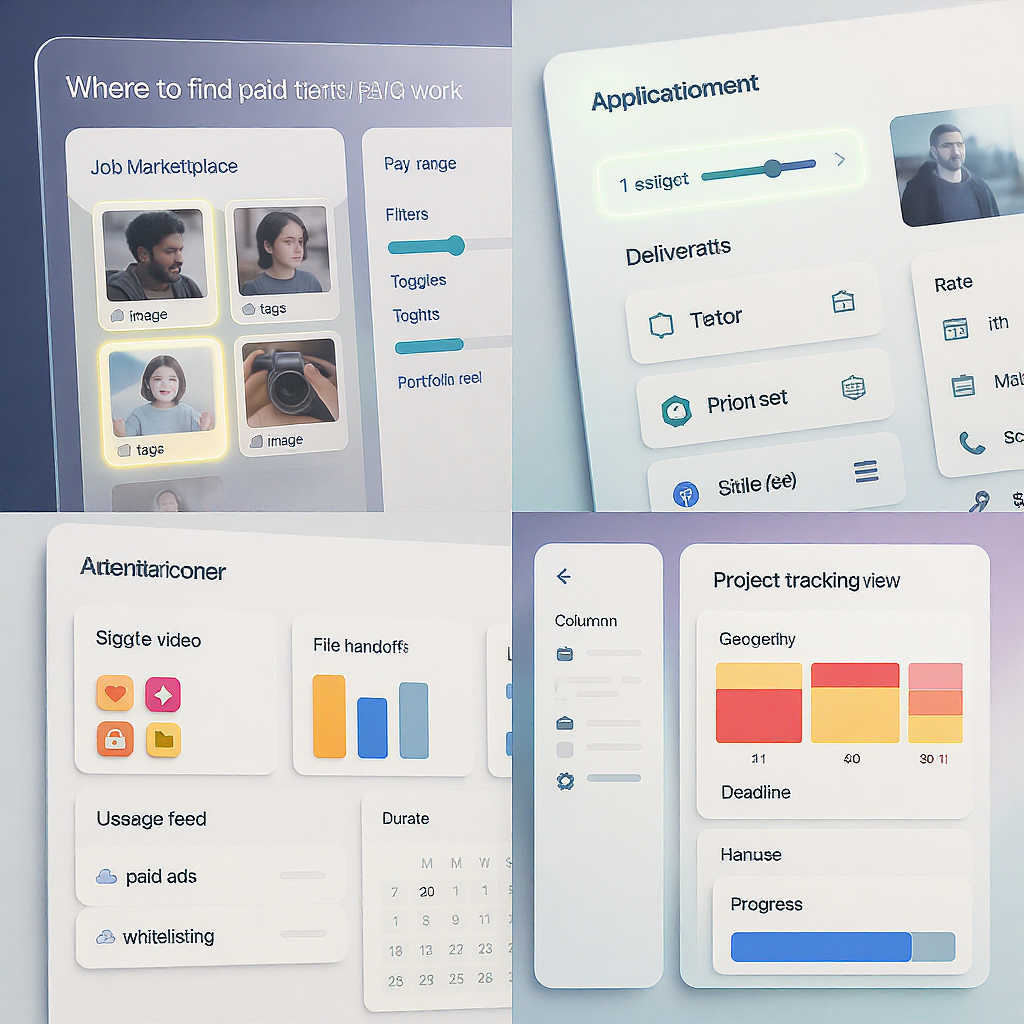
Summary
This guide walks you through becoming a paid UGC creator—from picking a niche and building a portfolio to finding clients, pricing your work, and protecting your rights. Use the workflow checklists, outreach templates, and two-week plan to launch quickly and iterate based on performance. With consistent testing and clear boundaries, you can scale sustainably while delivering content that converts.

